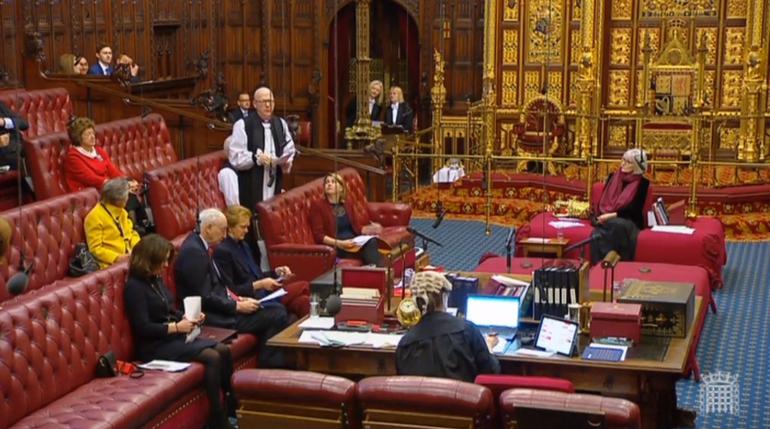Home Office minister Baroness Williams of Trafford offered support to the Registration of Marriage Bill, which seeks to implement reforms to move from a paper-based system to an electronic register.
Such a change to the way marriages in England and Wales are recorded would make it possible to include mothers' details - which are excluded under current rules.
Rt Rev Alan Smith told the House of Lords on Friday it was "archaic" to only allow a father's name to be recorded - noting this has been unchanged since Victorian times.
While moving the draft legislation, he said: "The purpose of this Bill is to correct a clear and historic injustice."
For the Government, Lady Williams said the changes would increase the security of marriage records as open marriage register books and blank certificates held in some 30,000 religious buildings can be a target of theft.
Addressing the timetable for implementing change, Lady Williams told the Lords: "Subject to the successful passage of the Bill, implementation will involve - clearly amongst other things - affirmative regulations being made and system changes, training and guidance for local registration services and for those who solemnise marriages.
"I will aim to implement these reforms as soon as possible following royal assent."
She added: "I know noble lords will recognise the importance of taking these changes forward, which modernises the process of registering marriages."
The Bill was supported by several peers during the debate and received an unopposed second reading.
It will undergo further scrutiny at a later date, although it has several parliamentary hurdles still to clear.
Conservative former minister Dame Caroline Spelman, the Church of England's official representative in the Commons, has moved an identical Bill as the campaign for change seeks to achieve its aim as quickly as possible.
Stay up to date with the latest news stories from a Christian perspective. Sign up to our daily newsletter and receive more stories like this straight to your inbox every morning.






